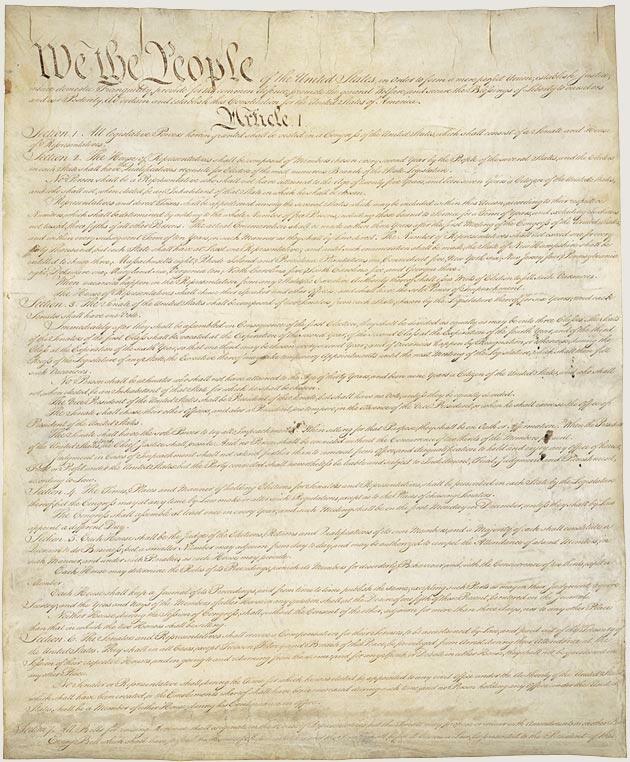Introduction
The political ideologies of the US have changed due to the dynamics of the state and political alignments. However, some traditions have remained the same over the years. This paper examines the changes in American political ideologies and what has remained the same. The report also explores the most interesting exhibit from the tour of the American History Museum.
What Has Not Changed
The We the People tag in the constitution document has influenced the tenets of the continued fight for justice, posterity, tranquility, liberty, and welfare needs among the Americans of different cultural orientations (Wolfe 31). Moreover, the American dream belief system has remained intact over the years as an inspiration for greatness, irrespective of family background. Just like at the beginning of the United States union, many citizens have risen from humble backgrounds to become presidents.
Just like Abraham Lincoln, president Barrack Obama reaffirmed the spirit of the American dream by overcoming the odds to occupy the white house. In American, the inspirational stories of ‘rags to riches’ have not changed over the years. Moreover, most of the richest Americans are college dropouts who have become an inspiration and a blueprint for defining the unique American capitalism culture (Patrick and Werkhoven 52).
Moreover, the three arms of government have not changed over the years since the inception of a united America. Just like during the reign of president Washington, the executive, judiciary, and legislative branches continue to be operational. Moreover, the national holidays have not experienced changes. In addition, the traditions around transition such as the presidential inauguration speech and dinner gala are still the same.
What Has Changed
The scope of basic freedoms in the US has changed over the years. Unlike before, when Americans would freely exercise their full freedom to associate, own property, or pursue other interests in life, things have changed tremendously. These freedoms have been curtailed on the grounds of national security and the need for the state to prevent terrorism. At present, the government has a communication data bank and is legally allowed to tap into private conversations.
Moreover, the freedom of movement and association are now limited to the declarations in the constitutional amendments (“America’s Founding Documents”). In addition, the requirements to occupy a political office have also changed. Unlike before, an individual must meet stringent conditions on educational, criminal record, and moral standards.
Interesting Exhibit
The most interesting exhibit from the tour is the constitution of the United States. This document is a summary of the ideals on justice, tranquility, defense, welfare, liberty, and prosperity of the US. This document forms the primary colossal merger for different interest groups and cultures making up the US (“America’s Founding Documents”). The document acted as the uniting factor for the American experiment with the We the People declaration (see picture 1).

This exhibit describes different factors influencing the creation of national documents and their content for a complete and sustainable application. For instance, the bill of rights must define the scope, nature, and applicability of different rights for sustainable cooperation, especially in an environment with different cultural and social dynamics (Talbot 17). In relation to the above document, these content and scope factors were included since there was a need to forge a united front among the Americans to ensure that the found independence does not integrate the society based on different cultural orientations (Albers and Mazur 25). Besides, the need for a more inclusive system of governance necessitated the approach used in creating the above document.
Works Cited
Albers, Michael, and Mary Mazur, editors. Content and Complexity: Information Design in Technical Communication. Routledge, 2014.
“America’s Founding Documents: The Constitution of the United States.” National Archives, 2017. Web.
Patrick, Tom and Sander Werkhoven. Utilitarianism. CRC Press, 2017.
Talbot, Steve. Native Nations of North America: An Indigenous Perspective. Pearson, 2014.
Wolfe, Patrick. The Settler Complex: Recuperating Binarism in Colonial Studies. UCLA American Indian Studies Center, 2016.